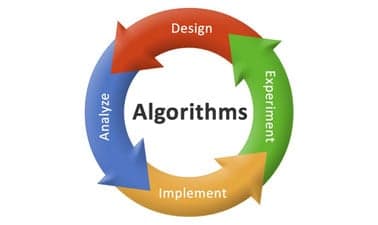Course Description
Welcome to "Algorithms: Design and Analysis, Part 2," an advanced-level course that delves deep into the heart of computer science. This self-paced course is designed to take your understanding of algorithms to the next level, offering a comprehensive exploration of complex algorithmic concepts and their practical applications. As a continuation of Part 1, this course will challenge you to think critically about algorithm design and analysis, providing you with skills that are highly sought after in the tech industry.
What students will learn from the course
- Mastery of greedy algorithms, including scheduling, minimum spanning trees, clustering, and Huffman codes
- In-depth understanding of dynamic programming techniques for solving complex problems
- Exploration of NP-completeness and its implications for algorithm designers
- Analysis of heuristics and local search algorithms
- Advanced problem-solving skills applicable to real-world computational challenges
- Ability to implement and optimize algorithms in a programming language of choice
Pre-requisites or skills necessary to complete the course
- Basic programming experience
- Familiarity with fundamental computer science concepts
- Completion of Algorithms: Design and Analysis, Part 1 (recommended but not mandatory)
- Equivalent to a third-year university computer science course
What the course will cover
- Greedy Algorithms
- Scheduling
- Minimum spanning trees
- Clustering
- Huffman codes
- Dynamic Programming
- Knapsack problem
- Sequence alignment
- Optimal search trees
- Shortest paths
- NP-completeness and its implications
- Analysis of heuristics
- Local search algorithms
- Practical implementation of algorithms
Who this course is for
This course is ideal for:
- Computer science students looking to deepen their understanding of algorithms
- Software engineers aiming to enhance their problem-solving skills
- Data scientists seeking to optimize their analytical techniques
- Tech professionals wanting to stay current with advanced algorithmic concepts
- Anyone with a passion for computational thinking and algorithm design
How learners can use these skills in the real world
The skills acquired in this course have numerous real-world applications:
- Optimizing software performance in various industries
- Solving complex logistical problems in transportation and supply chain management
- Enhancing data analysis and machine learning algorithms
- Improving search engine efficiency and recommendation systems
- Developing more efficient scheduling systems for businesses and organizations
- Solving intricate problems in scientific research and simulations
- Enhancing cybersecurity measures through advanced algorithmic techniques
By mastering these advanced algorithmic concepts, you'll be equipped to tackle some of the most challenging computational problems in today's technology-driven world, setting yourself apart as a highly skilled professional in the field of computer science and algorithm design.










